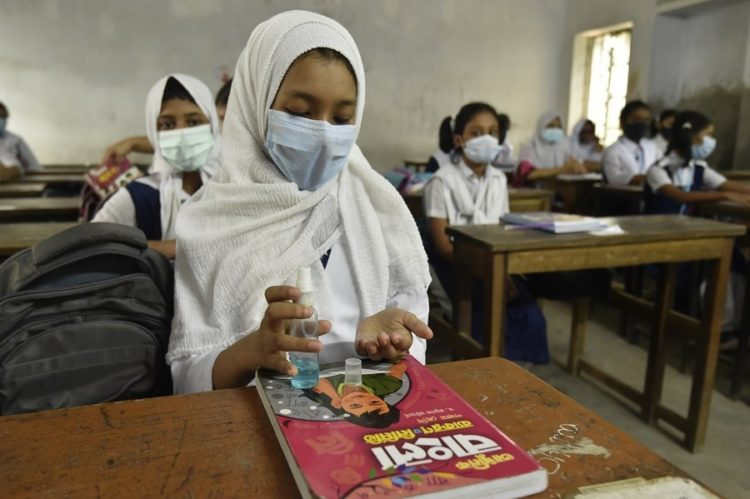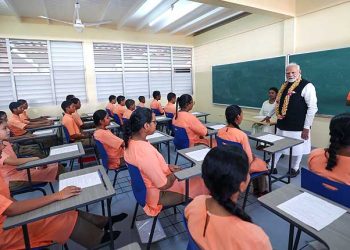New Delhi: Education Cannot Wait (ECW) has announced a total of $91.7 million in catalytic grant financing for new and expanded Multi-Year Resilience Programmes in Bangladesh, Pakistan, Burundi, Lebanon, Libya and Sudan.
All but Bangladesh are new multi-year investments, accelerating ECW’s growing expansion into countries impacted by protracted crises.
Across the six countries, the new catalytic grants aim to reach over 900,000 vulnerable children and adolescents, of whom 58 per cent are girls. Half of the children and adolescents targeted are refugees or internally displaced; and, 13 per cent are children with disabilities.
The new grants aim to leverage an additional $250 million worth of public and private donors’ funding aligned to the multi-year programmes in the six countries to reach a total 3.3 million crisis-affected children.
In all, ECW, the UN global fund for education in emergencies and protracted crises, now supports Multi-Year Resilience Programmes (MYRPs) in 24 countries and First Emergency Response (FERs) in 35 countries.
Thus far, a total of 42 emergency and protracted crisis countries have benefitted from ECW emergency education investments.
ECW has mobilised $845 million since fund’s inception and leveraged an additional $1 billion through ECW-supported Multi-Year Resilience Programmes.
“Today we mark a milestone in our global efforts to provide every crisis-affected girl and boy with their inherent human right to quality, inclusive learning opportunities. With additional support through our strategic donors, UN agencies and civil society partners, we have the capacity to bring ECW’s investments to scale and reach millions more children and adolescents impacted by conflict, climate change, forced displacement, Covid-19, protracted crises and emergencies with the safety, hope and power of education,” said Yasmine Sherif, Director of Education Cannot Wait.
“This is our global commitment to reach the Sustainable Development Goals by 2030, and we call on global leaders today to step up and urgently fund ECW and our partners with $1 billion in additional resources.”
With this expanded funding, the breakout global fund has already reached close to five million children. The Fund’s Covid-19 education in emergency response has reached an additional 29.2 million children with life-saving access to remote learning, health bulletins, water and sanitation facilities and other measures that are keeping students learning and preventing the spread of Covid-19.
For Bangladesh, ECW’s $13.2 million catalytic grant will reach 130,000 Rohingya refugee and Bangladeshi host community children and adolescents, providing a mechanism to align additional funding and scale-up the education in emergency response in Bangladesh.
Fully funded, the scaled-up programme will reach over 350,000 refugee and host-community children and adolescents impacted by Covid-19 and the Rohingya refugee crisis.
In Pakistan, approximately 22.8 million children are out of school. ECW’s new $13.2 million catalytic grant will reach 155,000 children and adolescents.
With $46.8 million in additional resources, the programme will ensure improved access to quality education for the most vulnerable out-of-school girls and boys, including many Afghan refugees and other children affected by crisis.
(IANS)



















